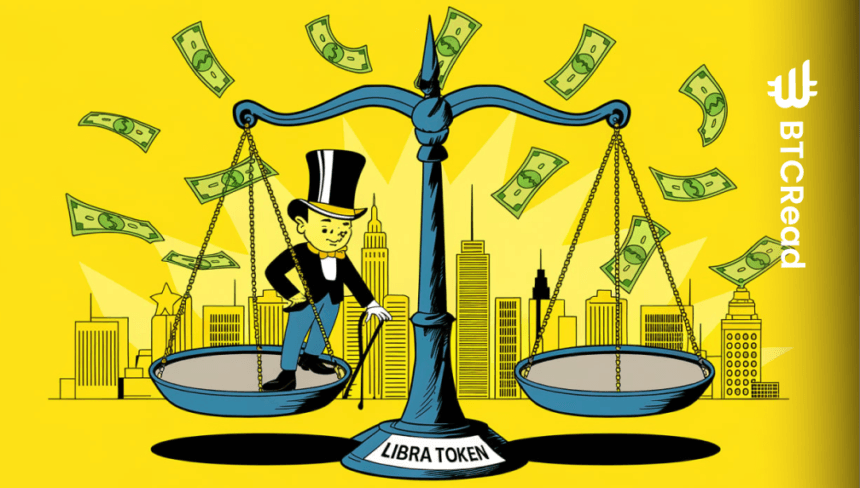The LIBRA memecoin saga has left the crypto market reeling, with losses of $251 million among investors. Data from blockchain research firm Nansen reveals that 86% of wallets trading LIBRA recorded losses, a stark reminder of the volatility in the space.
Endorsed by Argentina’s President Javier Milei on Feb. 14, 2025, the token soared to a $4.5 billion valuation before crashing within hours. According to the report, LIBRA launched with claims of supporting small businesses. Milei’s endorsement on X drove early interest, and the token’s price spiked to $4.55.
However, within minutes, the token plummeted, marking one of the fastest pump-and-dump scenarios in recent memory. Hayden Davis, a key figure behind the token, dismissed it as a meme coin despite its initial positioning as a tool for economic growth.
Further scrutiny shows a group of “insiders” profited significantly. Nansen’s analysis identified 15,431 wallets trading LIBRA with gains or losses exceeding $1,000. Out of these, only 2,101 wallets made profits, totaling $180 million, while the majority faced steep losses. Notably, 57 wallets executed rapid trades, with two wallets earning $5.4 million during the initial surge.

As the token collapsed, Milei deleted his endorsement tweet, claiming ignorance of the project’s details. Davis also stated that Milei had no financial stake in LIBRA. Yet, the damage to retail investors was irreversible, with many questioning the ethics behind such endorsements.
LIBRA traders face unrealized losses
Wallets linked to advanced trading bots and potential insiders raised further concerns. Some wallets moved LIBRA holdings across multiple addresses, masking their activities. One wallet earned $25 million, though subsequent analysis suggested complex offloading patterns.
On the other hand, the steepest individual loss was $6.3 million, reportedly incurred by a known trader and later reimbursed for $5 million. The incident also affected Solana, LIBRA’s underlying blockchain, which saw liquidity outflows drop by $3.8 billion. Market fatigue over repetitive pump-and-dump schemes has begun to surface, eroding trust and investor confidence.







